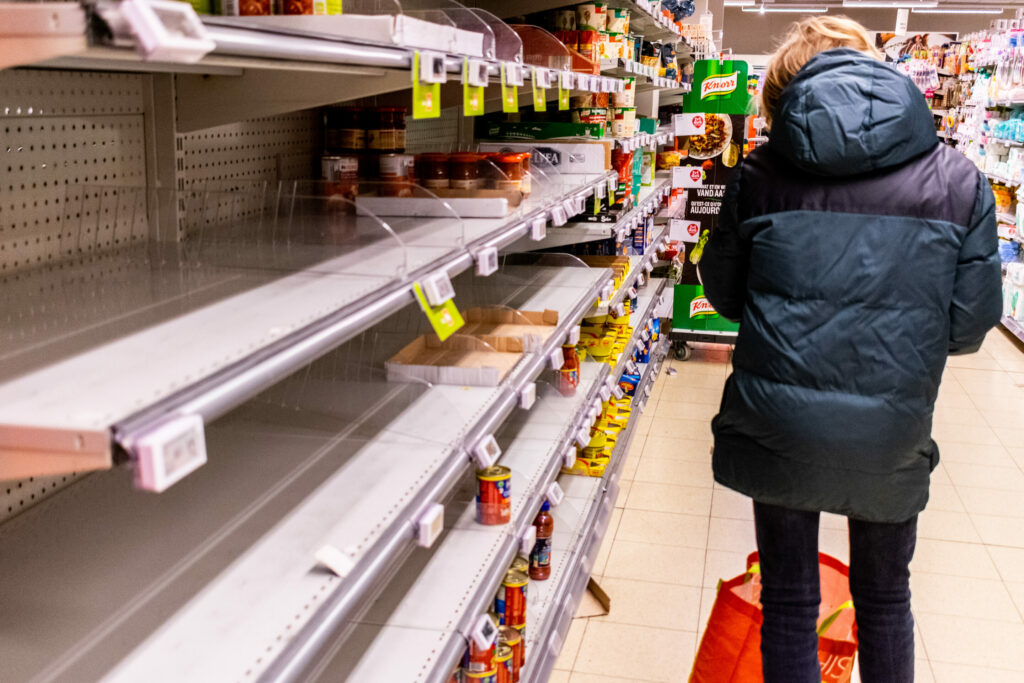Inflation rose to 4.5% in Belgium in October, driven higher by rising prices of natural gas and electricity as the cold and dark of winter sets in.
The latest European Harmonised Index of Consumer Prices (HICP) puts inflation at 4.5% for October, up from 4.3% in September and August.
Belgian statistics office Statbel noted that the biggest upward drivers of inflation were natural gas (contributing 1.52 percentage points), tobacco (0.82 percentage points) and electricity (0.28 percentage points).
Electricity and gas prices in Belgium have fallen significantly since energy crisis peaks last year. However, they still remain above pre-crisis levels, and could shoot up again this winter depending on weather conditions.
October figures show that energy inflation now stands at 1.2%, slightly up from 1.1% in September. Statbel has repeatedly pointed out that increasing energy inflation does not automatically equate to an increase in the cost of energy, as inflation figures are skewed by the phase out of government energy supports last year.
However, electricity is still 13.7% more expensive than a year ago, and natural gas is 125.4% more expensive. The price of heating oil has decreased by 22.2% compared to last year.
Food prices rising
Inflation for certain foods increased in October, driving an overall increase in food and non-alcoholic beverage inflation to 2.4% (compared to 1.6% in September).
There was an 11% increase for oils (compared to the previous month), a 2% increase in meat prices, a 1.9% increase for fish and a rise of 1.2% for bread and cereals. There was a decrease of 0.1% in the cost of dairy products, slowing from a 0.7% decrease in September.
Core inflation (which excludes energy and unprocessed food products) stood at 3.7% in October compared to 3.6% in September.
How did Belgium's neighbours fare?
Belgian inflation for October according to the EU's HICP is notably higher than 3.2% inflation reported by the Belgian consumer price index. This is mainly due to differences in the weighting and composition of the basket of consumer goods and services on which the two indices are based.
Eurostat will publish the HICP for all European Union countries for the month of October on 19 November.
Until then, inflation comparisons between Belgium and its neighbours can only based on initial flash estimates for October. In Belgium, the HICP flash estimate put October inflation at 4.7%, compared to 3.3% in the Netherlands, 1.5% in France, and 2.4% in Germany.
Belgium's relatively high inflation is partly due to high energy inflation, which has been skewed by the phase out of government energy supports.

